Are Golf Rangefinders Worth it? Are You Serious?
This post contains affiliate links from which Golfing Focus earns a commission (at no cost to you).

The explosion of golf technology over the last 20 to 30 years has led to a huge advancement in golf ‘accessories’ as well as golf clubs.
And one of the main items which have become hugely popular in recent years as a result is the golf rangefinder.
These devices can now do all sorts of things but at it’s most basic level a golf rangefinder will give you an exact yardage to any point on the golf course you choose – for example to the hole, the front of the green, a hazard, a bunker or even the group in front of you so you know when it’s safe to play.
But we managed to play golf for hundreds of years without rangefinders, and with some of the top models costing hundreds of dollars, it begs the obvious question of whether golf rangefinders are worth it?
Golf rangefinders provide clear benefits to golfers serious about improving. Giving accurate yardages to any point on the course they are easy to use and help amateur golfers avoid one of their most common mistakes – underclubbing. Laser and GPS are the 2 main types and prices range from $89-$500+.
While cost is clearly the main consideration in any purchase the advancement in the functionality of golf rangefinders has made the decision of whether to buy one or not much more complicated.
The vast majority of models have now moved well beyond the original and basic function they were designed for and can assist amateur golfers with decisions on the golf course as if they had their own caddie walking alongside them.
For a growing number of golfers today therefore golf rangefinders are a key component of their golf bag as they offer an additional way, beyond the tried and tested method of more practice on the range, to improve their golf scores.
Top tip: If you are interested in checking out the best laser rangefinders as recommended by MyGolfSpy and Golf Digest check them out on Amazon here:
- Bushnell Pro XE – superbly accurate with unique magnetic mount
- Nikon Coolshot ProII Stabilized – the best rangefinder for shaky hands!
- GolfBuddy Laser Lite – Great features for the price.
- Precision Pro NX7 Slope – Outstanding value for money and arguably best bang for your buck.
3 Tests which Decide Whether Golf Rangefinders are Worth it?
With the large quantities of makes and models of rangefinders available today it can quickly feel like you need to take a course in order to make the right decision.
But if we start by simply looking at the main high-level pros and cons of golf rangefinders, rather than focusing on specific types (GPS and Laser are the 2 main types) and functionality you can get a better view of whether they are something that will help you with your own golf game.
So here is a list of the main pros and cons of golf rangefinders whatever the make or model:

Another con that is often levelled against golf rangefinders is that at best they distract players from the core essence of the game – which is a golfer’s battle against themselves and the course – and at worst they are a form of cheating.
My experience in well over 30 years of playing golf is that the purists are never happy with any changes which come into the game and it’s not golf rangefinders that are to blame.
Yes, and particularly when connected to a phone, rangefinders can distract golfers as they seem frequently to be focusing on a device rather than their game or playing partners.
But if you see the golf course as a sanctuary away from the stresses and strains of everyday life the simple answer is to turn off the features that distract you or choose a rangefinder that only does the basics.
As for the ‘it’s cheating’ argument I can just never understand that one.
How does a rangefinder do anything different for an amateur player that a caddie does for a pro?
Is a pro always cheating by having a caddie? That’s just an odd argument for me.
We can see therefore that golf rangefinders have a number of benefits.
But as they can come with an often hefty price tag the question which inevitably follows is – are the benefits worth the price?
The most important question to ask yourself is how seriously do you take your golf?
To come to a conclusion on that one I would like you simply to focus on the following 3 questions:
- How often do you play? If you are a regular golfer and playing every week you are playing often enough to give yourself a chance of improving. If however you only play the odd bounce game less than once a month it’s unlikely the cost of a rangefinder is going to be worth it. If you’re only an occasional player I would stick too just enjoying the times you get out there and not worry about whether you are 136 or 137 yards from the flag. And even if you’d still like to play around with rangefinders and see what all the fuss is about there are some good free GPS apps out there you can easily add to your phone.
- Where do you play your golf? If the golf that you do play, however infrequent, is played on lots of different courses then a rangefinder can be of value to you. If you don’t know a course it can be very difficult to gauge yardage and trust the yardage markers or posts which have been set up on the course. I’ve experienced over the years that different courses seem to have different ideas about how far 100 yards is! And sometimes you’re not sure if those yardages are to the front or middle of the green as you forgot to check before teeing off. So although you may not be playing that often you may be keen to make sure you don’t make a total hash of things at that next company or buddy day out and having a rangefinder to give you some accurate yardages can help. But if your occasional game is always on your home course chances are you know what clubs to hit from everywhere on the course so the value of a rangefinder giving you exact yardages is probably not as great.
- How seriously do you take your golf? While many golfers preach the benefits of golf rangefinders and consistently say they can’t now play golf without them, the third and most important question to ask yourself is how seriously you take your golf? If your answer is ‘not very and certainly not if it means I’m going to need to spend a lot of money’ then I wouldn’t bother with getting a rangefinder. If you prefer just having some fun with your mates and are not too bothered about your scores just leave the technical devices in the bag and enjoy the walk and the chat. If on the other hand you are keen to get better and are prepared to act on the data your rangefinder gives you then there are very clear benefits to using it. After all, if you want to drive those scores down why wouldn’t you want to have something to act as close to a caddie as you’re likely going to get. Knowing your yardage numbers can make a serious impact on your scores if you use them right.
Saying all that however if you are a beginner or haven’t managed to break 100 consistently yet I’m not sure I would think about getting a rangefinder just yet.
Until you’re hitting the ball with a solid strike at least 2 out of 5 times on full shots, the distance range over which you hit each club will be too wide to make knowing your yardages that important.
Also from a game management point of view beginners and high handicappers tend to have too much cluttering their minds already and it doesn’t make sense to add an obsession with yardage numbers to that.
It is therefore better if you are at that stage to focus on more fundamental elements of the game such as consistent ball striking and cutting out your ‘major mistakes’ – i.e. the number of times you 3 putt, driving errors, the number of times you hit the green each par-3 and the number of times you miss the green from 50 yards out.
[Editor’s note – tracking your game stats is important but it’s clearly critical also you track the right ones. Golf’s traditional stats have a lot of weaknesses so we’ve put together a list of the 10 best golf stats you should be keeping track of. Check it out here.]
Which Golf Rangefinders are Worth it? GPS or Laser?
If you’ve made the decision that a rangefinder will help you with your game then the next question becomes which one to get.
And that’s where things can get tricky and overwhelming as there are literally 100s of them on the market today with what seems like a never ending list of features and add-ons.
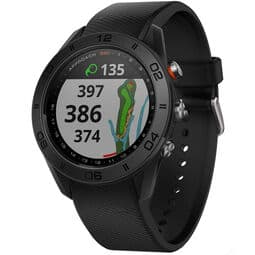

To make things simpler though remember that there are basically two types of rangefinder for you to consider – Laser and Global Positioning System (GPS) devices.
Laser rangefinders are so-called for the simple reason that they use a laser to calculate the distance to a specific point on the golf course.
When the golfer presses the button the rangefinder emits a pulse of light in a wide beam which is then reflected back to the device when it hits an object.
By measuring the time it takes the light to travel that distance, the processor in the device can determine the distance.
So working similarly to a pair of binoculars all golfers needs to do is look through the eyepiece to focus on the target they want, press a button and the rangefinder gives them a yardage. In other words, just point and press.
GPS rangefinders by comparison depend on a satellite to give the yardage and will display it – either as a number to the front, middle and back of the green or on a complete image of the hole you’re playing – on the device.
Both types can come with a multitude of features and bells and whistles which as I say can quickly seem overwhelming.
So to help break down the comparison between the two we have listed below the main functions and features for you to consider if you decide to buy one.

You can quickly see that neither device covers everything. The choice therefore simply comes down to personal preference.
You may prefer for example to glance at a GPS watch for a yardage rather than to have to take a laser device out of your golf bag to get an exact yardage.
If your home course has a lot of blind shots or doglegs, or if you travel for business or pleasure and enjoy playing new courses, a GPS unit with full hole imagery has obvious benefits over a laser rangefinder.
Yardage accuracy meanwhile is the single biggest reason to choose a laser rangefinder. So if it’s going to annoy you not to know the exact yardage to a pin, bunker or hazard get a laser that can be accurate to within 1/10th of a yard.
Who needs a yardage to an accuracy of less than a yard you may ask?
Well very good players can benefit from having very precise yardages as they have an excellent idea of how far their shots will carry and can be highly accurate with those crucial wedge shots.
A birdie putt from 10ft will be holed by a scratch golfer more than twice as often as one from 20ft for example (1 in 3 from 10ft vs. less than 1 in 6 attempts from 20ft) so you can see how important a couple of feet here or there can be to very good players.
But if you’re not a single figure handicap player I’m not sure I would be worrying too much about whether you have a yardage that is supremely accurate.
And it’s important to remember also that the ‘slope’ function on laser rangefinders can’t be used in tournaments.
Some experts believe that the lower the handicap of the individual golfer the less GPS with full hole imagery helps them as good players can get around a course just fine with what they can see and therefore a laser rangefinder is much more valuable.
However the latest GPS devices can provide detail and information that can be useful to any golfer, regardless of their skill level.
When it comes to the final choice the important thing is to know your own game and then decide on the tool that can make your life easier.
For some that will be a laser and for others it will be a GPS device. There is no right or wrong answer.
Simply put it’s about course management.

Eliminating a few ‘major mistakes’ can easily take 4-5 strokes off your score so whichever device will help you do that is the one to go for.
Indeed some golfers decide it’s both and use their GPS device to get an idea of the hole layout and where best to target their drives and par 5 lay-up shots before using a laser rangefinder for their shots into the green.
[Note – If you are interested in our top picks of GPS watches and handheld devices check out our recommended golf electronics page where we provide a run down of the ones we choose and why!]
Is a Golf Rangefinder Cheating Never Mind Worth it?
Golf purists hate change and when it comes to golf rangefinders they will consistently put forward the view that using one is illegal according to the rules of golf and therefore cheating.
Leaving the purists’ typical argument aside that rangefinders are cheating because they reduce the skill required to play the game it is worth us just double-checking the official rules on the use of rangefinders when playing.
A golf rangefinder, or any distance measuring device, is not cheating and legal to use in golf tournament play under rule 4.3 except when specifically banned by a ‘local’ course rule. The ‘slope’ function on specific golf rangefinders can never be used however and must be switched off.
The current rules covering the use of golf rangefinders have in actual fact been subtly tweaked in recent times and this has led to the debate about whether using them is legal or cheating rearing its head again.
As rangefinders became increasingly mainstream the rules of golf in 2006 stated that whilst you could use them when it came to social golf they were not permitted in competitions or tournament play.
There was an exception to this original rule though which stated that rangefinders could be used and shared by players if there was a ‘local rule’ exception.
In other words, every club or event or tournament could declare that at their course or competition rangefinders or any ‘distance measuring device’ (DMD) were actually allowed.
On 1st January 2019, along with a whole host of other major golf rule changes, this default position was however effectively reversed under rule 4.3.
The rules now state that golf rangefinders, or any DMD, can be used at any time and can only be banned through a ‘local rule’.
So when a golf club, golf course or tournament wants to restrict the use of rangefinders it today needs to put in a local rule prohibiting their use.
Therefore unless you get told about a local rule at the club or event or tournament where you are playing saying rangefinders are not permitted you can use them.
So when it comes to the majors the position is now that in the Masters, US Open and British Open you have a ‘local rule’ stating that rangefinders can not be used during the tournament while in the USPGA there is no such ‘local rule’ and therefore they can be used by virtue of the current rule 4.3 default.
So in short you should be checking the ‘local rules’ at the course of the tournament you are playing to confirm whether you can use your rangefinder or not.
Always remember though that just because you have a lot of features on your rangefinder doesn’t mean they are all allowed to be used in tournament play.
Some of the functions and features on rangefinders are still not permitted.
The ‘slope’ function for example, which measures the yardage taking account for the elevation difference between you and the target (and sometimes weather conditions also), cannot be used during a competitive round.
Here is a summary of the Do’s and Dont’s you need to be aware of for competition rounds:

Don’t worry though that these rules now mean you’ve got to go and change your new laser rangefinder or GPS device for one that doesn’t have all these non-permitted features on it when you need to play in a competition.
All the good devices today will let you turn these features on and off as you need although it’s probably worth double checking you can do this before finally making your device choice.
Do the Pros think Golf Rangefinders are Worth it?
Whenever amateur golfers consider buying a new piece of equipment part of the consideration typically focuses on what the pros are up to.
If Tiger Woods or Rory McIlroy or Brooks Koepke is using a new driver or putter you can guarantee a whole host of amateur players will be following their lead to see if it makes a difference to their own game.
So what are the pros doing when it comes to golf rangefinders?
We don’t see any of them using a rangefinder on the PGA or European Tour so surely they don’t think much of them or don’t need them because they have a caddie?
The reason however players don’t use rangefinders during tournament rounds on the PGA Tour is that the PGA has implemented a ‘local’ rule which doesn’t permit their use on any of their pro tours.
As a result players and caddies only use golf rangefinders during practice rounds to find exact yardages from various points on the golf course they think they may want to hit shots from during the tournament.
The reasoning behind this PGA Tour ‘local rule’ is that the PGA think that it is part of the skills of a player and their caddie to work out exact yardages during tournament play, taking in account wind, weather and course undulations for example, without the use of a technical aide.
Indeed a nice example of this comes from Rickie Fowler’s caddie, Joe Skovron.
Joe, like all the other caddies uses a laser rangefinder during practice rounds, including the slope function which takes account of the uphill and downhill elevation of the shot, but doesn’t always go with the exact number that the rangefinder gives.
Here’s a quote from Joe about the 18th at Augusta.
“Eighteen at Augusta shoots up 14 (yards), for example, but we never play up 14 … (meaning the device shows the finishing hole as playing an additional 14 yards longer because of the upslope to the green from the fairway) … We play up 5 to 8. It’s a variance that we do.” (Source: USA Today Sports)
While clearly the accuracy the pros and their caddies operate at is on a different level to us mere mortals there’s a useful lesson here.
Just because your golf rangefinder says it’s an 8-iron distance to the pin on the 15th of your home course doesn’t mean you should automatically hit an 8-iron.
You will have played that hole many many times and if you’ve never hit an 8-iron from that spot to the back of the green where the pin is it’s unlikely you will do so now just because your rangefinder says you should.
Never forget to keep using your judgement. A rangefinder is just another tool at your disposal to help.
It doesn’t play the shot!
Final Thought
Golf rangefinders can provide clear benefits and although some of the top models can be costly there are gains to be made by golfers using them in the right way and at the right time.
My own personal view is that beginners and high handicappers are probably better served focusing on improving their game fundamentals before they start worrying too much about yardages taking account of course elevation changes.
But if a rangefinder gives you more confidence that you’re hitting the right club and helps you eliminate those scorecard killing ‘major mistakes‘ it’s difficult to argue there’s a problem with that.
Also given how many players use them now you could simply start by seeing if one of your friend’s or playing partners already has one to let you try it.
Or the next time you’re at the range or course ask at the shop if they will let you test one.
Given how hard the game of golf can be at times you want to make sure you get rewarded for good shots.
And a rangefinder could certainly help you get the credit you deserve for those good shots you used to hit with the wrong club due to an incorrect yardage.
Just don’t get too obsessed with your device and the numbers and forget to play what’s in front of you!
More great articles related to this topic:
- Do Golf Simulators Improve Your Game? Only if You Use Them Right
- How Much Does a Golf Club Fitting Cost? Is it Worth it?
- Can You Get Your Existing Clubs Fitted? Complexity = Cost
- Is Hitting Golf Balls Into a Net Good Practice? Feel is Key!
- Are Driving Range Distances Accurate? Golf Balls are a Problem
- Should You Get a Waterproof Golf Bag? It’s a No Brainer
- What is the Best Practice Putting Mat? An Owner of 7 Reviews
RECENT ARTICLES
LEGAL INFORMATION
This site is owned and operated by Golfing Focus Limited, a private limited company whose registered office is in London, UK. Golfing Focus Limited is a participant in the Amazon Services LLC Associates Program, an affiliate advertising program designed to provide a means for sites to earn advertising fees (at no cost to you) by linking to Amazon.com. Golfing Focus Limited also participates in other affiliate programs with the eBay Partner Network, FlexOffers, CJ.com, Svorn and other sites and is compensated for referring traffic and business to these companies (again at no cost to you).
Our Socials

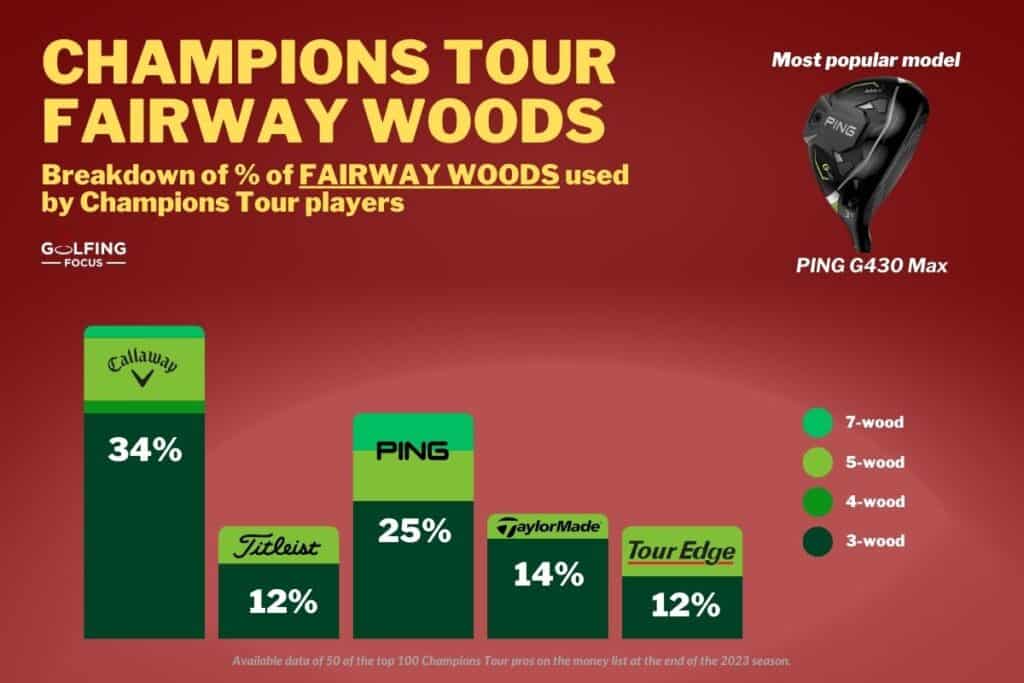
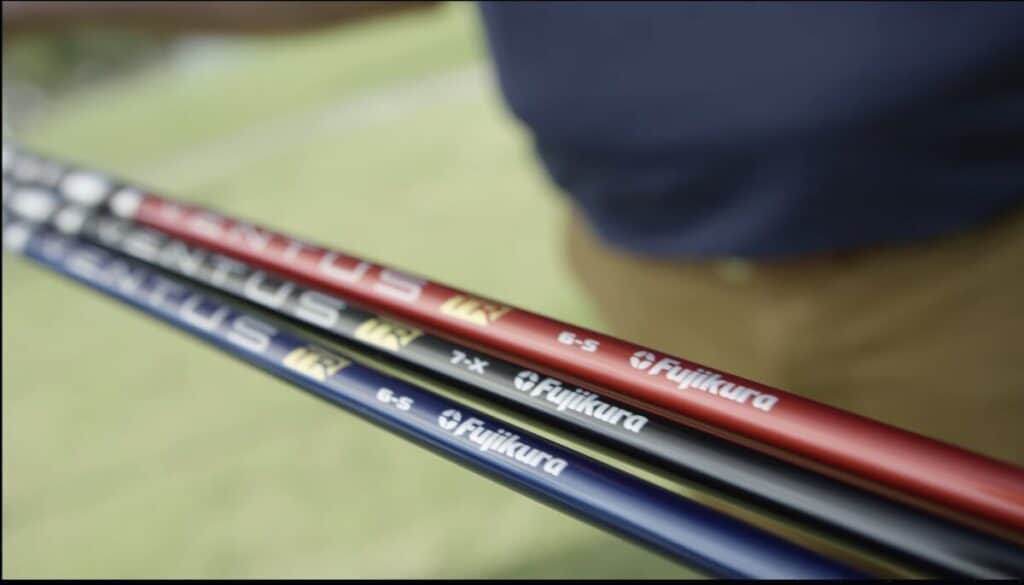
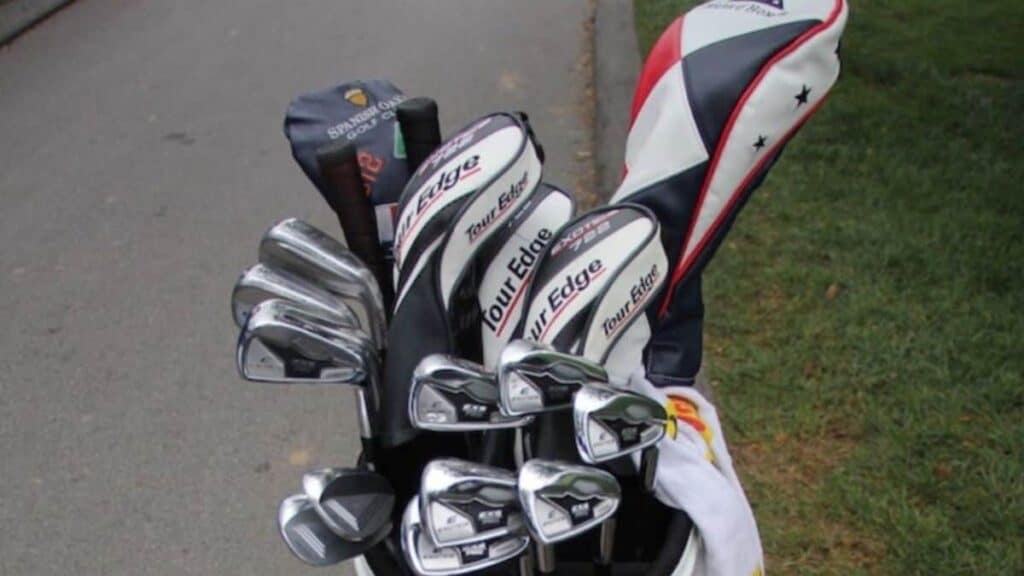
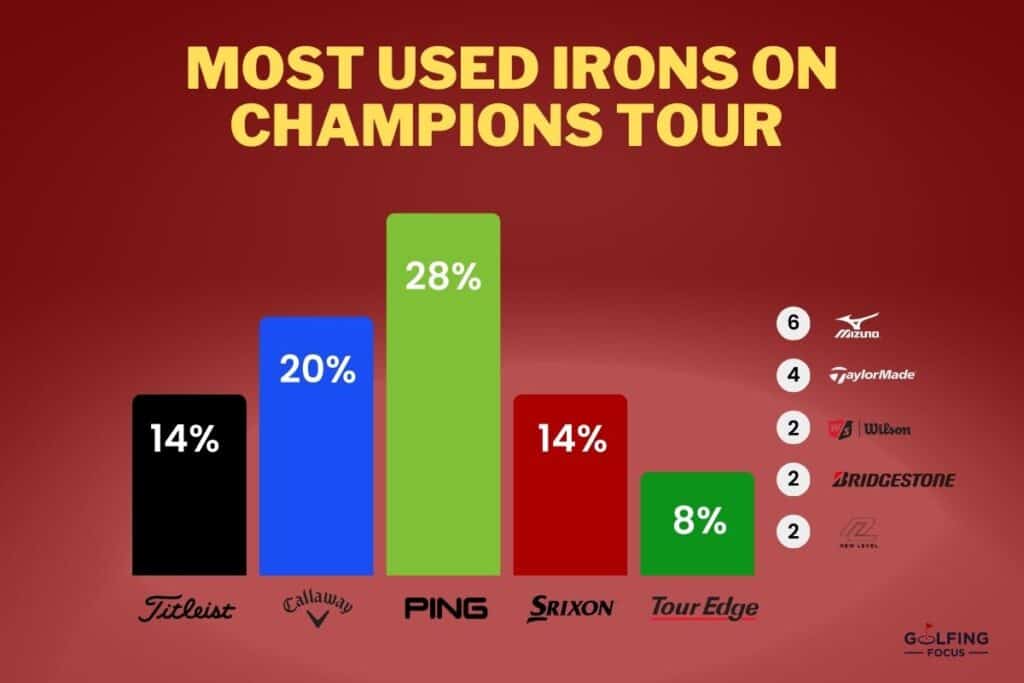

Leave a Reply